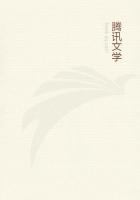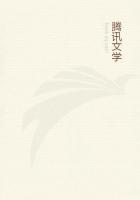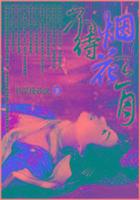That capable and ingenious writer, Mr. Arthur Symons, has included in a book of essays recently published, I believe, an apologia for "London Nights," in which he says that morality should be wholly subordinated to art in criticism, and he uses the somewhat singular argument that art or the worship of beauty is the same in all ages, while morality differs in every period and in every respect. He appears to defy his critics or his readers to mention any permanent feature or quality in ethics.
This is surely a very curious example of that extravagant bias against morality which makes so many ultra-modern aesthetes as morbid and fanatical as any Eastern hermit. Unquestionably it is a very common phrase of modern intellectualism to say that the morality of one age can be entirely different to the morality of another.
And like a great many other phrases of modern intellectualism, it means literally nothing at all. If the two moralities are entirely different, why do you call them both moralities?
It is as if a man said, "Camels in various places are totally diverse;some have six legs, some have none, some have scales, some have feathers, some have horns, some have wings, some are green, some are triangular.
There is no point which they have in common." The ordinary man of sense would reply, "Then what makes you call them all camels?
What do you mean by a camel? How do you know a camel when you see one?"Of course, there is a permanent substance of morality, as much as there is a permanent substance of art; to say that is only to say that morality is morality, and that art is art. An ideal art critic would, no doubt, see the enduring beauty under every school;equally an ideal moralist would see the enduring ethic under every code.
But practically some of the best Englishmen that ever lived could see nothing but filth and idolatry in the starry piety of the Brahmin.
And it is equally true that practically the greatest group of artists that the world has ever seen, the giants of the Renaissance, could see nothing but barbarism in the ethereal energy of Gothic.
This bias against morality among the modern aesthetes is nothing very much paraded. And yet it is not really a bias against morality;it is a bias against other people's morality. It is generally founded on a very definite moral preference for a certain sort of life, pagan, plausible, humane. The modern aesthete, wishing us to believe that he values beauty more than conduct, reads Mallarme, and drinks absinthe in a tavern. But this is not only his favourite kind of beauty; it is also his favourite kind of conduct.
If he really wished us to believe that he cared for beauty only, he ought to go to nothing but Wesleyan school treats, and paint the sunlight in the hair of the Wesleyan babies. He ought to read nothing but very eloquent theological sermons by old-fashioned Presbyterian divines. Here the lack of all possible moral sympathy would prove that his interest was purely verbal or pictorial, as it is;in all the books he reads and writes he clings to the skirts of his own morality and his own immorality. The champion of l'art pour l'art is always denouncing Ruskin for his moralizing.
If he were really a champion of l'art pour l'art, he would be always insisting on Ruskin for his style.
The doctrine of the distinction between art and morality owes a great part of its success to art and morality being hopelessly mixed up in the persons and performances of its greatest exponents.
Of this lucky contradiction the very incarnation was Whistler.
No man ever preached the impersonality of art so well;no man ever preached the impersonality of art so personally.
For him pictures had nothing to do with the problems of character;but for all his fiercest admirers his character was, as a matter of fact far more interesting than his pictures.
He gloried in standing as an artist apart from right and wrong.
But he succeeded by talking from morning till night about his rights and about his wrongs. His talents were many, his virtues, it must be confessed, not many, beyond that kindness to tried friends, on which many of his biographers insist, but which surely is a quality of all sane men, of pirates and pickpockets; beyond this, his outstanding virtues limit themselves chiefly to two admirable ones--courage and an abstract love of good work. Yet I fancy he won at last more by those two virtues than by all his talents.
A man must be something of a moralist if he is to preach, even if he is to preach unmorality. Professor Walter Raleigh, in his "In Memoriam:
James McNeill Whistler," insists, truly enough, on the strong streak of an eccentric honesty in matters strictly pictorial, which ran through his complex and slightly confused character.
"He would destroy any of his works rather than leave a careless or inexpressive touch within the limits of the frame.
He would begin again a hundred times over rather than attempt by patching to make his work seem better than it was."No one will blame Professor Raleigh, who had to read a sort of funeral oration over Whistler at the opening of the Memorial Exhibition, if, finding himself in that position, he confined himself mostly to the merits and the stronger qualities of his subject.
We should naturally go to some other type of composition for a proper consideration of the weaknesses of Whistler.
But these must never be omitted from our view of him.
Indeed, the truth is that it was not so much a question of the weaknesses of Whistler as of the intrinsic and primary weakness of Whistler.
He was one of those people who live up to their emotional incomes, who are always taut and tingling with vanity. Hence he had no strength to spare; hence he had no kindness, no geniality;for geniality is almost definable as strength to spare.
He had no god-like carelessness; he never forgot himself;his whole life was, to use his own expression, an arrangement.
He went in for "the art of living"--a miserable trick.
In a word, he was a great artist; but emphatically not a great man.















